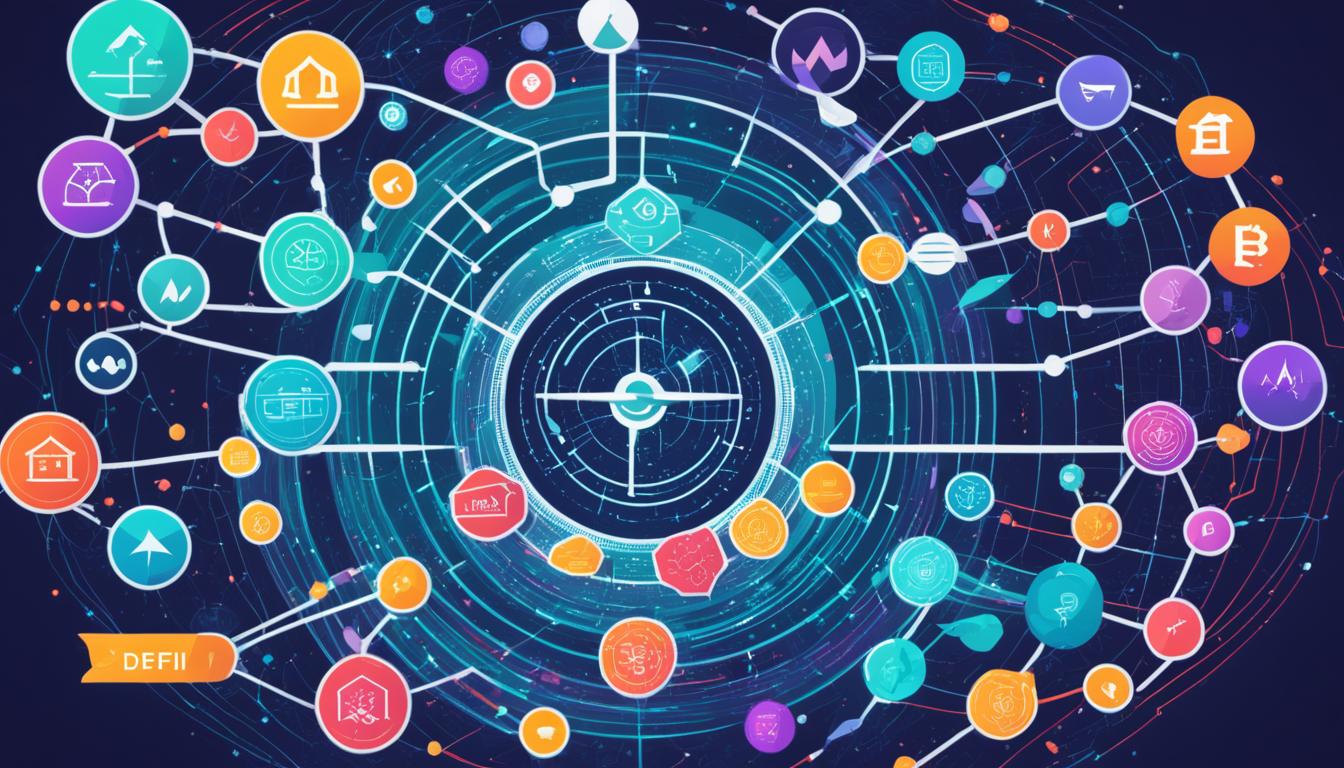Did you know that governance tokens are revolutionizing the world of decentralized finance (DeFi) projects? These tokens are giving individuals the power to influence the future of blockchain networks and make decisions that shape the entire ecosystem.
In fact, governance tokens have become a vital component of the DeFi landscape, with their ability to drive widespread participation and engagement among token holders. With the rise of DeFi, governance tokens have gained significant attention and adoption, leading to a more decentralized and community-driven financial system.
Now, let’s delve deeper into the fascinating world of governance tokens and explore their role in the ever-evolving realm of decentralized finance.
Key Takeaways:
- Governance tokens empower participants in DeFi projects to have a say in the decision-making process.
- Popular governance tokens include Maker (MKR), Compound (COMP), Uniswap (UNI), Aave (AAVE), and Yearn.finance (YFI).
- Governance tokens allow holders to vote on proposals and shape the future of the projects.
- Voting power is determined by the number of tokens held, ensuring a decentralized governance process.
- Governance tokens offer advantages such as decentralized decision-making, community engagement, and incentivized contributions.
How Governance Tokens Work
Governance tokens play a vital role in decentralized finance (DeFi) projects by granting holders the power to participate in the decision-making process. These tokens enable individuals to have a say in the governance of the project, ensuring that it aligns with the collective vision and values of the community. But how exactly do these governance tokens work?
The key feature of governance tokens is their ability to provide voting powers within the decentralized governance system of DeFi projects. Each token holder is granted voting rights, and the weight of their vote is determined by the number of tokens they hold. This mechanism ensures that those who hold a significant number of tokens have more influence over the decision-making process.
Once token holders cast their votes, a consensus mechanism comes into play. This mechanism helps assess the collective opinion of all token holders and determines which proposed changes should be implemented. By utilizing a consensus mechanism, governance tokens prevent any single user or entity from monopolizing control over the network. Instead, power is distributed among token holders, promoting decentralization and community involvement.
The governance structure of these tokens typically follows the principle of “one token, one vote.” Proposals require a certain percentage of token holder approval to be accepted. This ensures that decisions are made collectively, taking into consideration the interests and perspectives of the entire community.
The voting and decision-making processes occur automatically through the use of smart contracts. These contracts ensure that the governance system remains secure and tamper-proof, preventing any malicious actors from manipulating the results.
However, there are some challenges that governance tokens face. One such challenge is low voter turnout, which means that not all token holders actively participate in the decision-making process. Additionally, token concentration among a small group of individuals can also lead to skewed decision outcomes, potentially undermining the goal of decentralization.
Overall, governance tokens provide a platform for decentralized governance in DeFi projects. They allow token holders to actively contribute to the shaping of the project’s future by participating in the decision-making process. Through the use of these tokens, communities can collaboratively build a more resilient and inclusive ecosystem.
Conclusion
Governance tokens have emerged as powerful tools that empower participants in DeFi projects to shape the future of decentralized finance. These tokens offer numerous advantages, including decentralized decision-making, transparent governance, and incentivizing contributions, among others. They enable token holders to actively engage in the development and operation of DeFi protocols, fostering a more inclusive and community-driven ecosystem.
However, the use of governance tokens also comes with risks. Low voter turnout and concentration of voting power among a small group of individuals can undermine the democratic nature of decentralized governance. Moreover, the manipulation of governance systems and potential regulatory implications pose challenges to the effective functioning of these tokens. It is essential for token holders and stakeholders to remain vigilant, educate themselves, and actively participate in governance processes.
The future of decentralized governance in DeFi projects will be shaped by the regulatory landscape that defines the rights and obligations of token holders. As the crypto industry continues to evolve, it is crucial for token holders to stay updated on relevant regulations and take proactive measures to manage their risks. By diversifying their holdings, supporting promising projects, and participating in public conversations and policy debates, token holders can contribute to the expansion and innovation of the DeFi ecosystem.
In conclusion, governance tokens have the potential to transform the traditional financial system by fostering transparency, inclusivity, and community-driven decision-making. Through active participation and responsible governance, these tokens can pave the way for a resilient and decentralized future for finance.

Leave a Reply